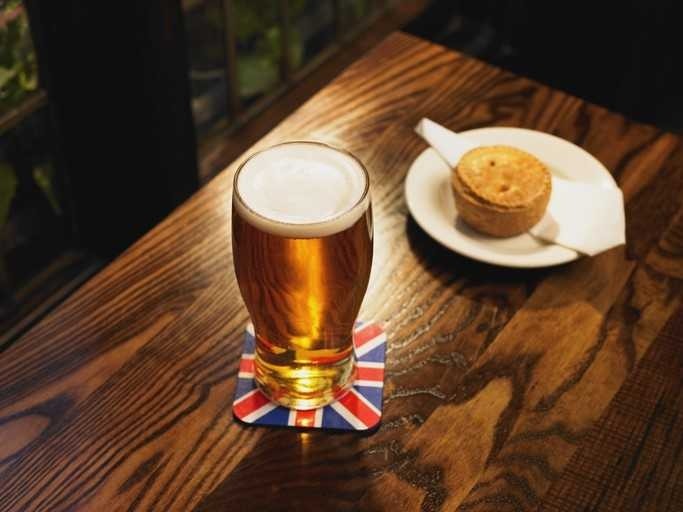‘Optimism and dynamism’ among independent UK brewers

Meanwhile, breweries continue to invest: most breweries made capital investments in 2017 (11% invested more than £50K in 2017 while one in 10 invested more than £100K). Meanwhile, an estimated 820 jobs are expected to be created by independent brewers next year.
SIBA, the Society of Independent Brewers, represents more than 850 independent craft breweries in the UK.
UK beer market has stabilized
The UK craft beer market grew 1.7% last year, compared to growth of 0.7% in the overall beer market. British craft beer fans consume around 506 million pints a year – around 2.8 million hectolitres – representing 6.5% of the total UK beer market.
The 2018 British Beer Report is based on the results of a survey of more than 519 brewers.
“Despite ongoing intense competition and a difficult trading environment for SIBA members in 2017 our annual members’ survey paints a broadly positive picture,” said Mike Benner, chief executive, SIBA.
“There is evidence that, after years of decline, the UK beer market has stabilised, but this stability is fragile and growth has shifted clearly from the on-trade to the off-trade.
“Estimates of overall production volumes for SIBA members are up by 1.7% against an increase in the total UK beer market of only 0.7%. Around 80% of SIBA member beer goes into the on-trade which overall, has seen a decline of 2.4%. Within this environment, our survey shows that SIBA’s independent British craft brewers continue to perform well.”
Out of the brewers surveyed, 41% have an annual turnover of £50k-£250k, while 41% have an annual turnover above £250k.
What's brewing: Independent beer in the UK
- Average beer strength is 4.2% ABV – session beers are still leaders
- Golden ales are the most produced beer style – 90.5% of respondents brew at least one, while 80.4% brew stout/ porter
- One in three breweries surveyed are now brewing craft keg and lager-style beer on a regular basis
- Production of gluten-free and low-alcohol beers is on the rise among SIBA members
- Most respondent brewers produce between four and six regular brands
- 91% of respondents brew seasonal beers
63% of respondents to the survey expect their annual turnover to increase in 2018 (and 10% expect increases over 10%); although the picture is not all rosy with 19.5% predicting a decline.
“The results suggest that our members continue to move their businesses forward positively and enthusiastically, despite the challenges of competition, increasing costs and low wholesales prices,” continued Benner.
“Those businesses who recognise the power of their brand, understand their costs, know their market, continue to innovate, look at all formats, make the most of new opportunities in craft beer bars and casual dining and understand the need for various sales channels at different prices are cutting through to growth and leading the sector.”
Challenges and innovation
Independent brewers, however, face ‘very real challenges’ in the marketplace with ‘unprecedented competition’ and the continued dominance of big beer.
Brewers know they cannot rest on their laurels and continue to innovate, says SIBA.
“More brewers are moving into craft keg with 44% now brewing some beer for keg dispense,” says the report. “Likewise the majority of respondents now bottle or can 20% of their beer. This is a clear indicator of our members seeking out new opportunities across the formats. Not so long ago cask ale represented well over 80% of production. It is now 69%. Cask remains the main product for most members, however, and is by far the biggest format for our smaller level one members.
“It’s also great to hear of innovations with more brewers introducing low-strength and gluten-free beers as well as a shift towards lager styles. UK craft brewers continue to lead the way in beer innovation.”
Access to market is proving to be one of the biggest challenges for independent brewers, reports SIBA, with pubs continuing to choose high volume ‘big beer’ brands.
Meanwhile, an increasing number of independent brewers are seeking to secure their own direct access to their own pub or on-site retail facilities
“For many small brewers, this is providing a direct and reliable route to market of great importance. Over 50% of member beer still heads into the local free trade. Only 13% goes into controlled/tied pubs, a situation which must change if we are to create a sustainable future.
"Britain’s drinkers seek out genuine local craft beer regardless of who operates the pub they walk into and the continued lack of access represents a fundamental market failure. Local craft beer drives footfall into pubs, yet too many operators are still failing to provide enough access and remain focused on high volume ‘big beer’ brands.
“Members are increasingly seeking out new opportunities in export – one in five brewers are now exporting their beers – and in hospitality – around 4% of member beer is served in restaurants and hotels. There is a massive opportunity for growth in this area.”
Community venues
Pubs have always been a cornerstone of UK communities, while an increasing number of breweries report they are operating a shop, tap bar or visitor centre on site (more than two thirds of breweries surveyed offer one of these facilities, while 10% offer all three).
Interaction with locals is also deemed important: 84% of respondents said they consider their relationship with the local community as ‘important’ or ‘extremely important’. Meanwhile, 82% have supported at least one charity in the past 12 months.
“About 45% of respondents indicated that the charities they supported were located or operating within the same town or village of the brewery, a slightly lower percentage compared to previous surveys but it still confirms the importance of breweries for local communities and their role in supporting and fostering community cohesion and social initiatives,” continues the report.
One in three respondents gave a tour of their brewery to a MP (Member of Parliament) in 2017.







